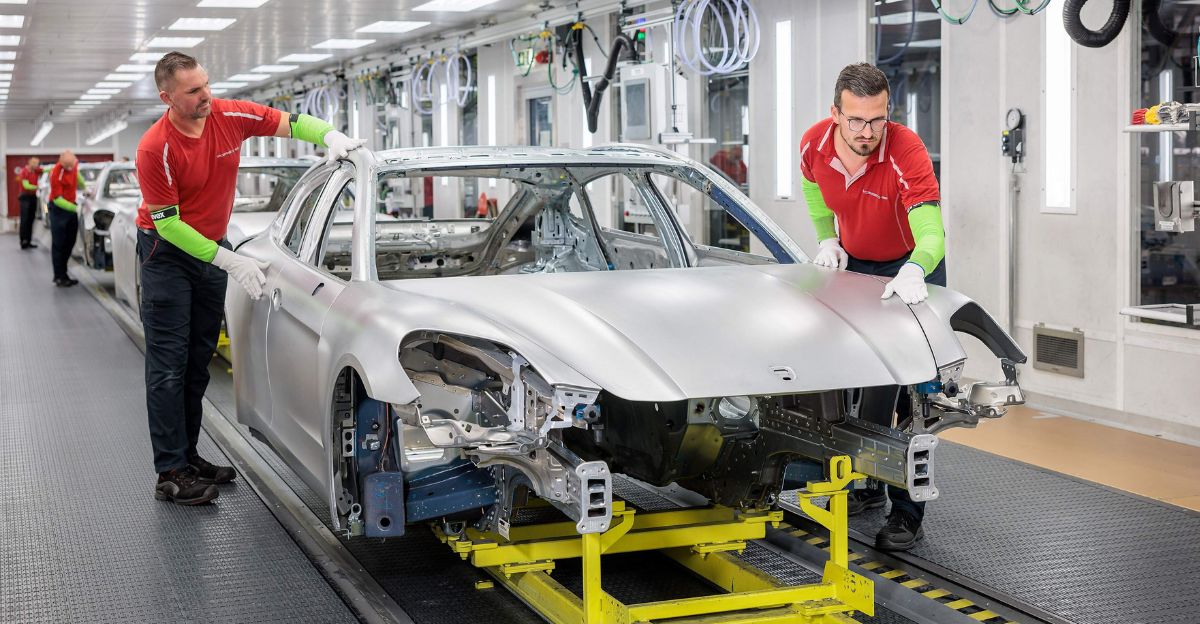
President Donald Trump’s insistence that automakers build complete cars in the U.S. may ring patriotic and straightforward, but the truth is much more intricate. Even the most “American-made” vehicles only contain some 70% U.S. content, with essential components imported worldwide.
The U.S. does not have the raw material, processing facilities, and supply chain to facilitate 100% domestic car manufacturing. This gulf between political rhetoric and manufacturing needs has led Jaguar Land Rover, a prominent manufacturer, to reject U.S. production, blame tariffs, and cite economic viability. This article explores why the auto giant’s “no” is a rational response, not an act of rebellion.
Tariffs As A Double-Edged Sword
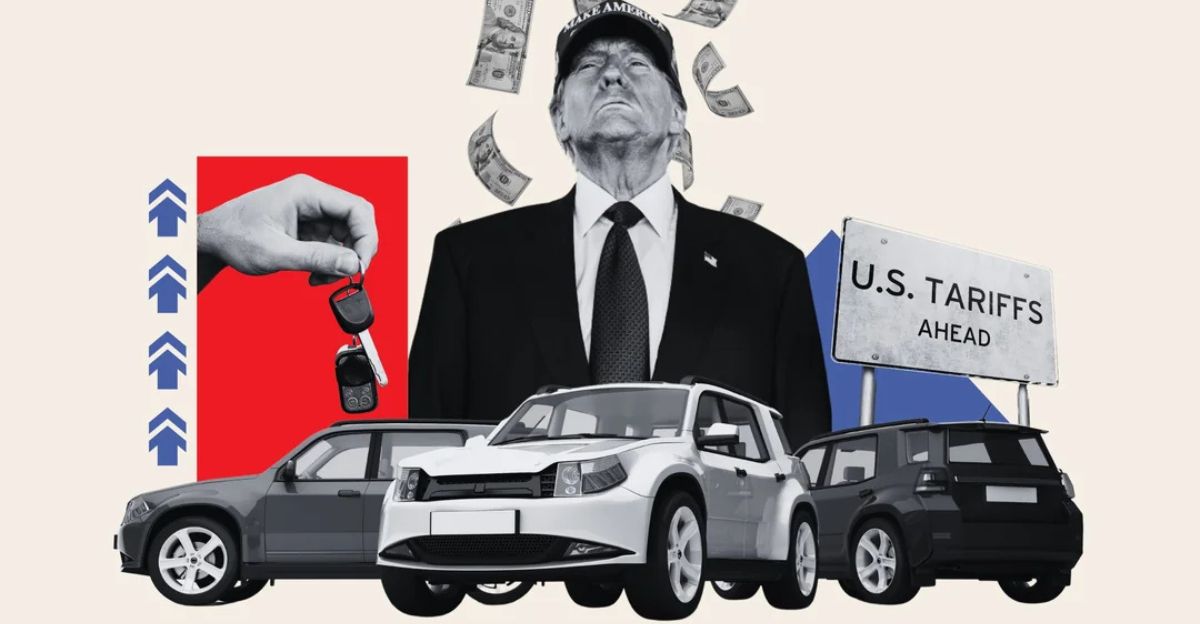
Trump’s 25% tariff on foreign cars and components was supposed to promote domestic manufacturing. Still, it has had the opposite effect: it has disturbed supply chains and increased the cost of car manufacturers.
Stellantis, for instance, has suspended production in Canada and Mexico and laid off American employees because their supply chains cut across borders. The levies have placed automakers in a costly dilemma: swallow the added expenses or pass them along to consumers, threatening sales declines.
This perverse result illustrates how protectionism in trade will turn against itself and harm the workers it’s intended to protect.
Global Supply Chains Make Simple Solutions Impossible
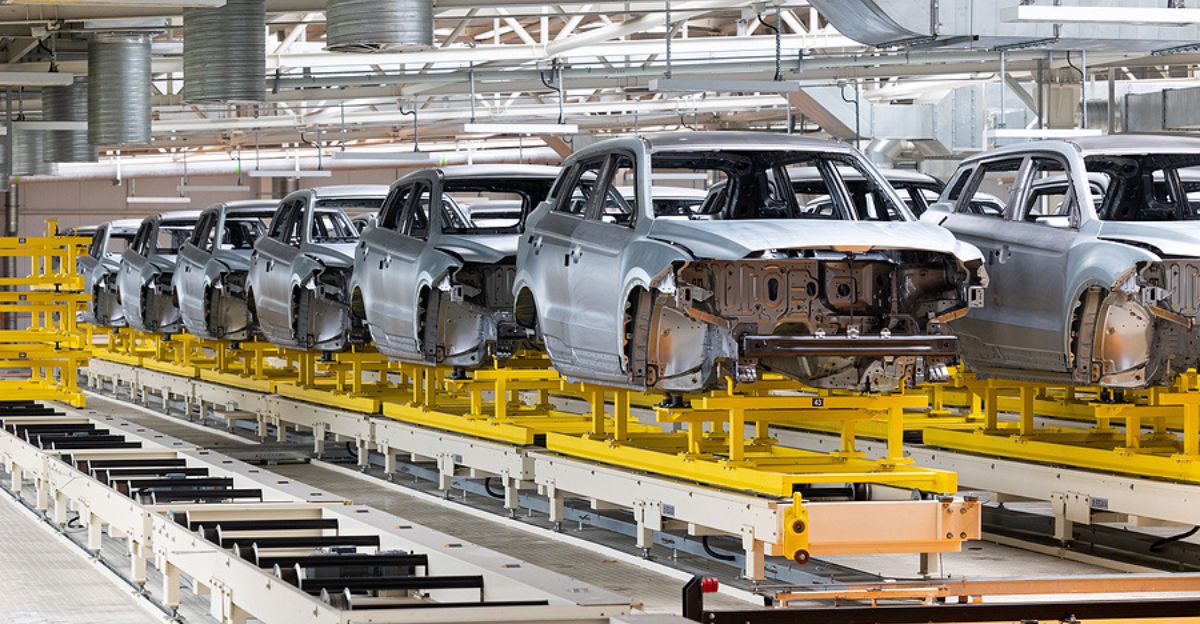
Modern car production involves a global web of suppliers. Parts are dreamed up, produced, and assembled in various nations to meet cost and quality best. Trump’s insistence on producing entire cars and all parts within the U.S. ignores this reality.
While producing vehicles in the U.S., Tesla still imports most parts from overseas. The U.S. does not yet have the industrial base to make all raw material needs, e.g., semiconductors, aluminum, and hard-to-source minerals, domestically at scale. Localization of everything would require a massive investment and decades of industrial accumulation.
Jaguar Land Rover’s Strategic Rejection
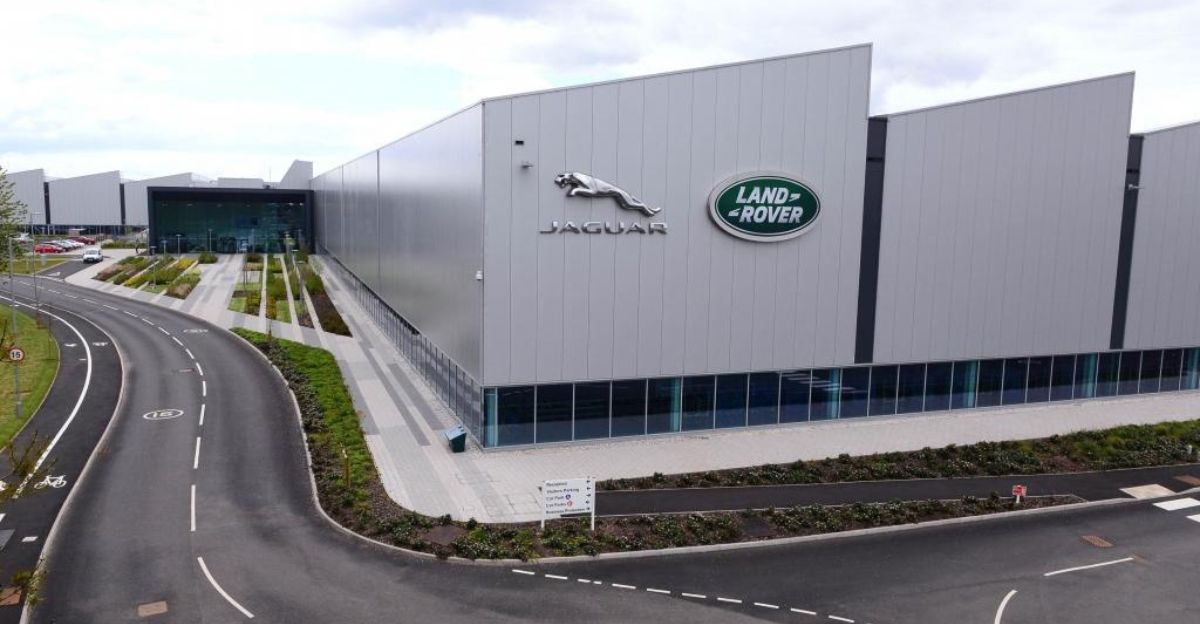
British-headquartered Jaguar Land Rover explicitly confirmed that it will not produce cars in America due to the unpredictability and cost induced by tariffs. The automaker halted American shipments during tariff imposition but resumed exports after some respite from tariffs.
Their strategy is just one example of a larger strategy among European and luxury automobile makers who find U.S. production economically unviable under the current trade policy. It’s not obstinacy but a realistic business decision to protect profitability and shareholder value without a trade policy order.
The Myth Of Job Creation Through Tariffs
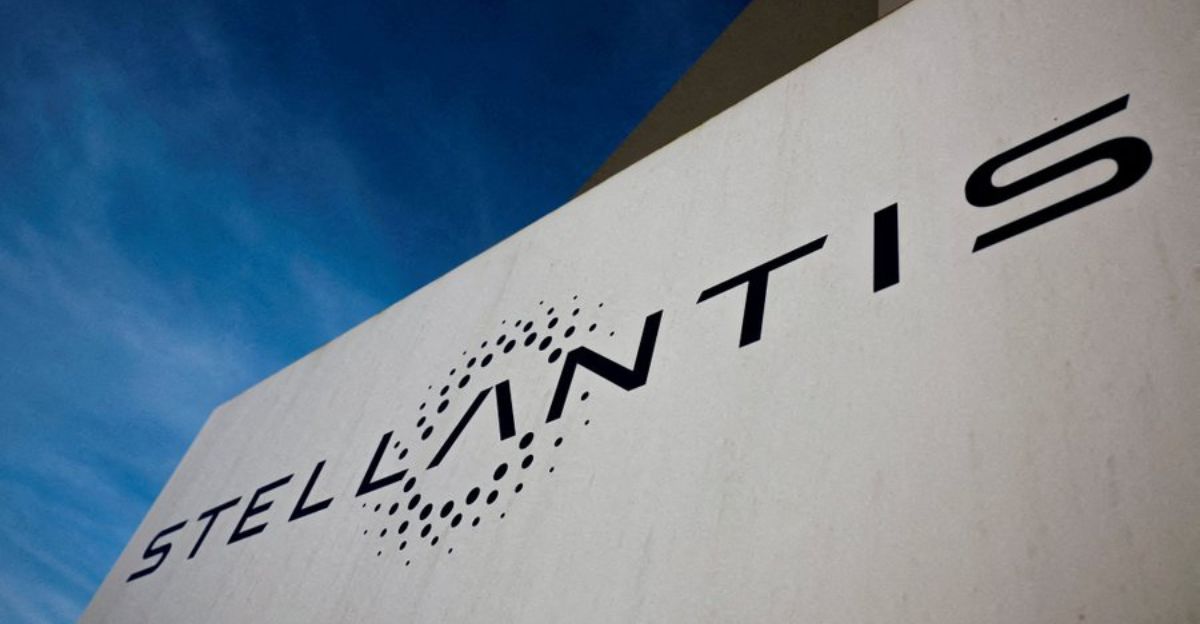
Although the Government presents tariffs as benefiting American jobs, things are more complicated. Stellantis’s laying off of 900 American employees during Canadian and Mexican slowdowns in production shows how interconnected supply chains make tariffs reduce employment at home.
When foreign assembly plants shut down, domestic production decreases, triggering layoffs in the production of parts. Thus, tariffs can restrict American employment in the auto sector, contradicting the political myth of job saving.
Economic Inefficiency And Consumer Impacts
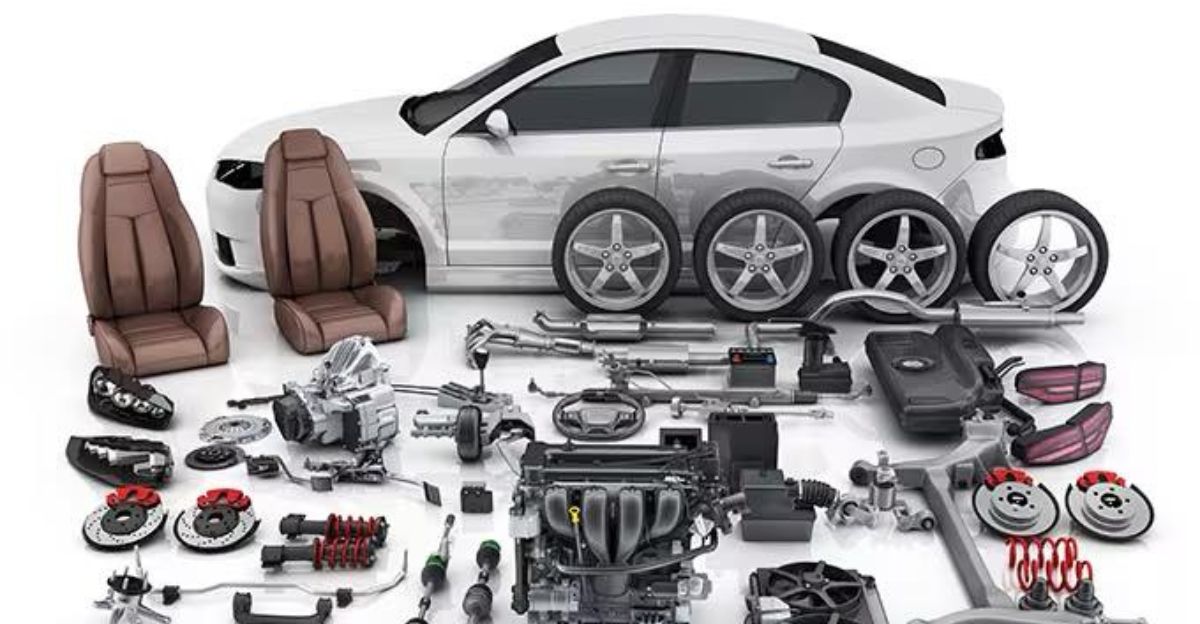
Forcing producers to produce their vehicles entirely in the U.S. makes production highly expensive. Economists put the cost of importing parts from all over the world at a lower price despite trade barriers.
The nation lacks sufficient processing plants for basic automotive parts, so complete localization is much too expensive. Consumers pay the cost in terms of increased car prices. The economic inefficiency harms the United States’ competitiveness in the global auto industry and may make American-made cars costly for many consumers.
What History Teaches Us About Protectionism
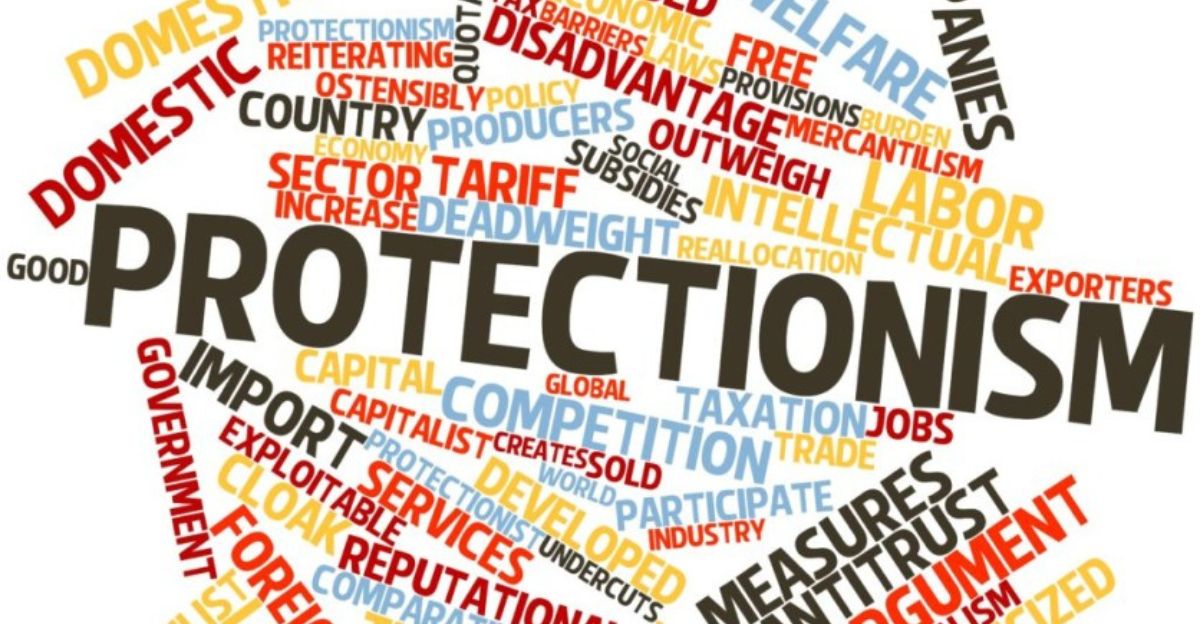
History warns that protectionist policies can often harm the businesses they aim to protect. The Smoot-Hawley Tariff Act of the 1930s led to the Great Depression as it stifled trade and drove up prices. It seems similar outcomes are also occurring with Trump’s tariffs.
They have created uncertainty and volatility for the auto sector, with profit projections being put on hold and risk-averse investment. Automakers prefer steadier, more predictable policies to base long-term manufacturing planning, which tariffs disrupt.
Globalization As Strength, Not Weakness

In the face of nationalist overtures, global supply chains have made the U.S. auto sector stronger, more resilient, and innovative. Rather than exposure to offshore suppliers, producers can benefit from expertise and low prices.
Forcing all American production isolates the industry from harm to efficiency and innovation. A fairer strategy encouraging domestic investment while maintaining global cooperation would be more in strategic and economic interest than bumbling tariffs.
Potential Impact On Innovation And The EV Transition
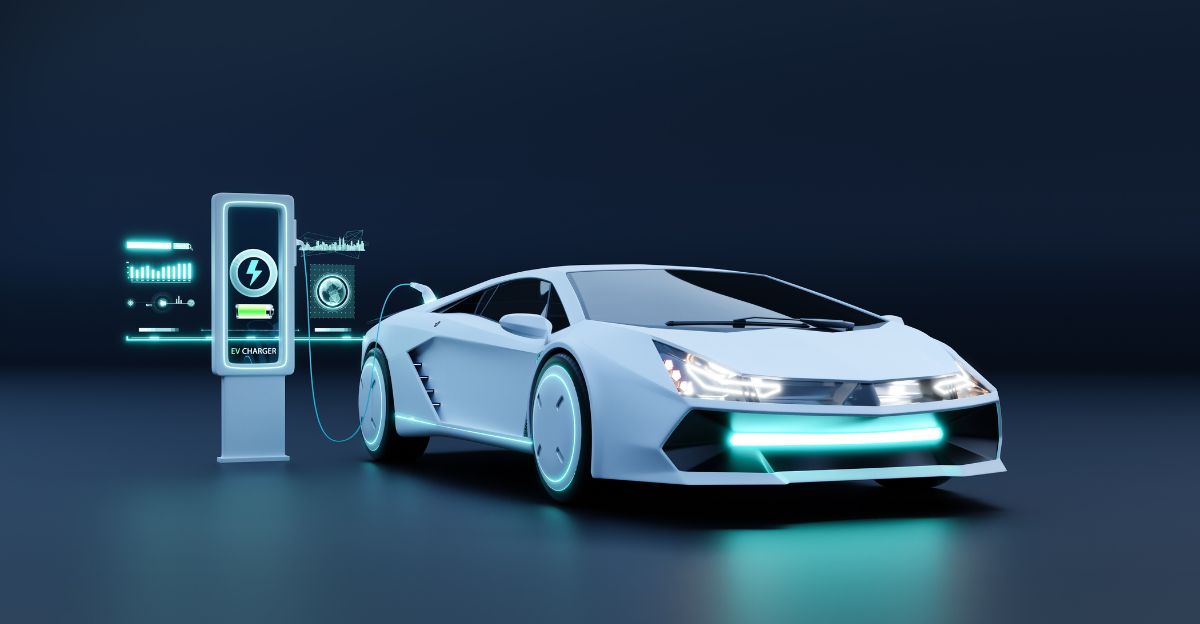
Tariffs and forced localization would hinder America’s transition to electric cars (EVs). EVSources of batteries and components for EV production chains are global. Disruption of sources would slow the pace of fielding and producing EVs and undermine climate targets and economic modernization.
Meanwhile, automakers would delay or offshore investments to avoid tariffs and concede the technical leadership to foreign competition. Thus, the choice not to manufacture fully in America is not just an economic sense, but strategic prudence.
A Plea For Practical Policy
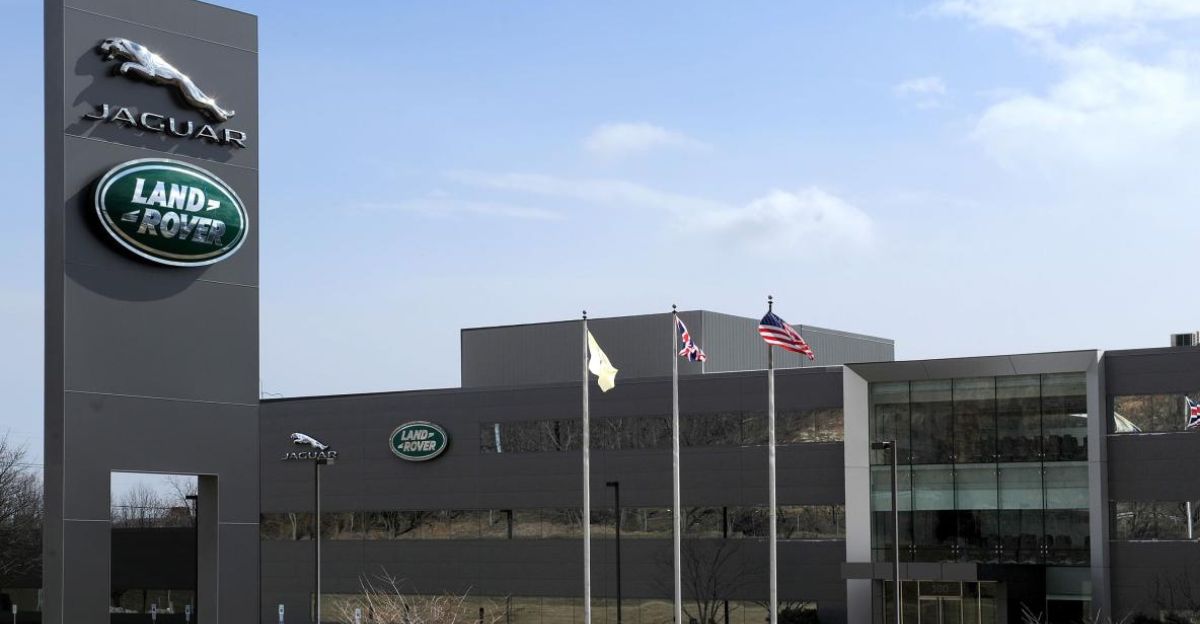
In a nutshell, giants such as Jaguar and LandRover’s utter refusal to make 100% of their vehicles in America with Trump’s tariffs is a practical and fundamentally accurate picture of their economic realities.
Protectionism has disrupted complex supply chains, raised prices, and become a protector of employees. Requiring 100% domestic manufacturing is the only option without extreme industrial restructuring and threatens to harm innovation and competitiveness.
Policymakers must recognize nationalism’s limitations in the international economy and pursue pragmatic policies that balance domestic interests with global integration to underpin the future of the U.S. automotive industry.
Discover more DIY hacks and style inspo- Follow us to keep the glow-up coming to your feed!

Love content like this? Tap Follow at the top of the page to stay in the loop with the latest beauty trends, DIY tips, and style inspo. Don’t forget to share your thoughts in the comments — we love hearing from you!